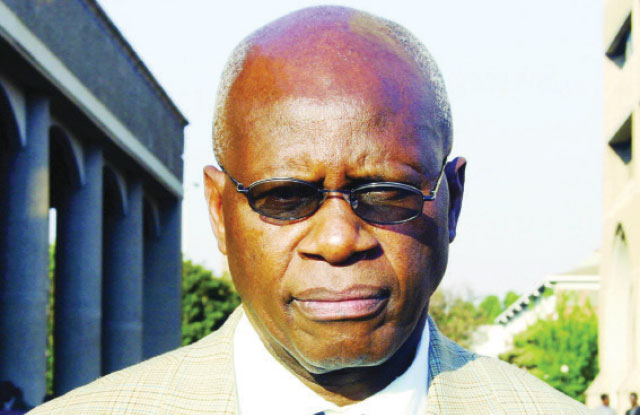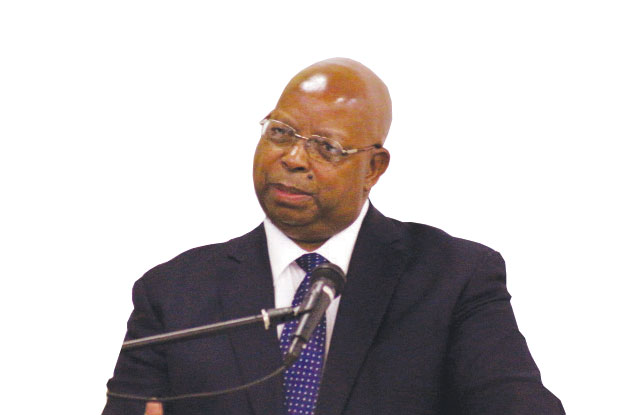Of import restrictions and the economy

Spectrum Joram Nyathi
THE issue of import restrictions introduced under Statutory Instrument 64 of 2016 is a hot one. Small traders in the informal sector are staunchly against import licences.
On the other hand we have one of those few occasions when Government and industry appear to speak with one voice from the same corner, yet with different ends in sight. Government needs to tread very carefully.
It’s no longer news that Government is facing a major revenue challenge and is scrounging to tap from every stream, including the informal sector where $7 billion is reportedly in circulation.
Industry hopes that if Government can tap into this sector, that might lighten its tax burden, so they agree.
The dilemma is that much of the money that is circulating in the informal sector is not made from selling local goods and services but from products cheaply imported or smuggled into the country.
To compound the mess, the money exported to import those cheap products which undermine local industry is generated by the same industry through exports, which exports themselves are constrained by an expensive American dollar.
Some creative thinking is required to deal with this conundrum.
Finance and Economic Development minister Patrick Chinamasa last week faced hostile parliamentarians vehemently opposed to SI 64.
There were fears the licensing system for imports could be abused, especially against vulnerable women.
There was also the issue of low capacity utilisation in industry, meaning it cannot meet demand, apart from matters of price and limited variety.
These are valid humanitarian arguments. But they are likely to be populist and short-term yet industry must be wary of losing people’s sympathy in the long-term.
Parliamentarians have a duty to speak for their voters even if it means destroying what’s left of old economy through unregulated imports.
We cannot afford a collapse which results in a vacuum simply on the strength of being able to import cheaply.
With industry on the other hand, local producers have for a long time insisted on the use of the American dollar despite the broader Government policy to maintain a multicurrency regime.
The result is that Zimbabwean products, no matter their high quality, are hard to export, reportedly due to antiquated machinery and high cost of labour.
For the same reasons, local industry is unable to meet local demand at competitive rates, hence the proliferation of cheap imports from across the globe.
It is only recently that industry has begun to push, unfortunately not for greater use of the multicurrency, but for a full adoption of the South African rand, the efficacy of whose sole use is still a moot point.
For its part, Government has not been ambiguous about its aims. It’s not simply about protecting local industry.
Minister Chinamasa lamented in Parliament last week that revenue collection was very low because “the economy is highly informalised and it presents problems in terms of revenue collection.
So our interest as Government is to recognize that there are those SMEs and to help them establish themselves into formal businesses so that we facilitate the collection of revenue.”
There is a serious challenge there, a huge dilemma. And that is at the centre of this article. But let’s hear the minister again.
“We are importing more than we export and a lot of the hard earned foreign currency that we make is going to buy trinkets, because we were operating in an over-liberalised foreign exchange market,” he told Parliament.
Now, let’s get to the crux of the matter. Zimbabwe is in the process of reconstruction in the midst of an economic emergency.
We are in the midst of growing a new, organic indigenous economy.
The reason Government is facing challenges in collecting revenue from the informalised economy is because it is still very, very fragile.
Most of the owners of these little businesses are self-financed mostly by scrimping on their meagre incomes, which have already been taxed.
Now we want to tax their little revenues, like lopping off the green shoots of maize plant.
One could liken this to a parent who employs child labour and denies his children the chance to further their education.
Yes, they might contribute to family income for the time being but it stunts their growth and limits their potential.
That is the risk of trying to tax the informal sector if it is not handled properly.
The other issue is to decide at what point we want to tax them: when they import the goods or when they consume? Why are there so many imported goods on the streets and shops and yet Zimra has little to show for it?
A major talking point of economic empowerment is the subject of financial inclusion.
This suggests that all sections of society should have access to readily available, affordable formal financial services.
But most of our people have been left out: their incomes are considered too low and unpredictable in the current job market; the banking system in generally too rigid in terms of requirements for one to open an account, too limited in terms of reach as it is confined to urban areas or the CBD where there is business (hence the proliferation and convenience of mobile money).
In other words our small business people are lifting themselves by their own bootstraps without the aid of the formal financial services sector.
In seeking to tax their income (which I insist must be carefully considered if we are not going to choke them to death), Government is in fact inverting the whole concept of financial inclusion in which the strong must strive to uplift and empower the weak.
The SMEs sector desperately needs capacitation in terms of finance, cashflow management and other training requirements for them to grow so that in the end Government has a bigger cake.
It is wrong and it should not be the objective of Government to talk about formalising the informal sector purely for purposes of tax to finance recurrent, non-productive expenditure.
Government should instead be working with the banking sector to provide resources to informal sector guys for them to get better equipment, better manage their enterprises and improve their working conditions and job security.
The informal sector has done a lot to act as a shock absorber for the thousands of students who graduate without any skills and have no chance of being formally employed at the moment.
One of the reasons banks insist on onerous collateral for borrowers in the informal sector and newly-resettled farmers is said to be a high risk factor.
As a result there are very few people who qualify for loans, at times risking their family homes in the hope that their business might grow.
Some of these people held strategic positions in companies which collapsed and all they need is capital to fully realize their dreams as entrepreneurs.
Thereafter Government can legitimately claim its share of the proceeds. The challenge is therefore for Government to work with financial institutions to secure cheap, long-term finance.
The money can be lent to individuals or as group loans depending on the sector while Government provides suretyship, mindful that we are dealing with people who take great risks but without insurance of any kind.
Banks should then be more flexible in their lending terms.
The processes of lending money, training, enterprise growth and loan repayments on their own should gradually and organically lead to the formalisation of the informal businesses.
Banks themselves should be worried about the nature of their operations when they are told that 70 percent of the population is unbanked.











Comments